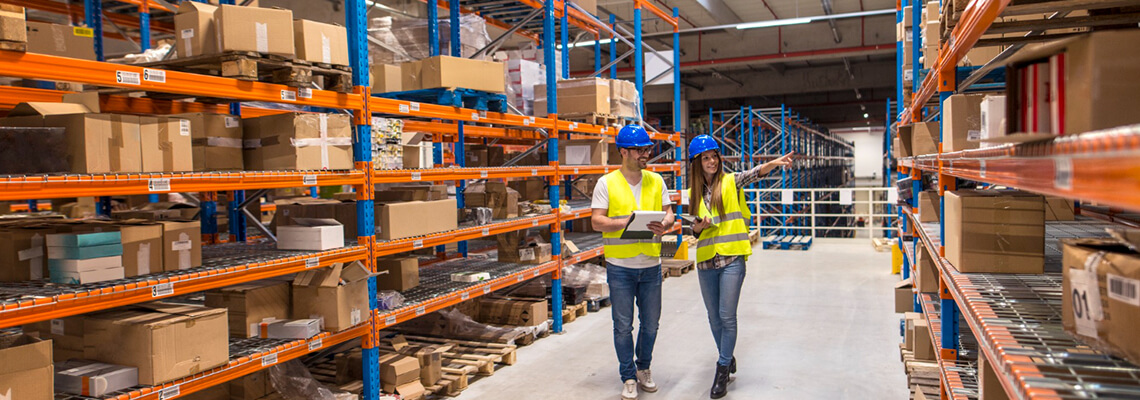 25 Feb 2022
25 Feb 2022
What is a Warehouse Company in Singapore? All You Need to Know
Warehousing holds physical products or merchandise in a storage facility until they are sold or distributed. Products are stored in warehouse Singapore safely and organized, making it simple to track their location, when they arrived, how long they’ve been there, and how many there are.
Warehouse companies in Singapore must adapt their services to meet its evolving requirements. Your retail supply chain relies heavily on warehousing. Warehouse and inventory storage have a significant operational role on:
- Raw material procurement
- Stock management
- Customer order fulfillment
Warehouses in Singapore can assist you in delivering the solutions supported by technology and allowing for multimodal capabilities. When you work with a logistics company to handle your supply chain, you free up time to work on other aspects of your business—the warehouse company in Singapore offers warehousing & distribution, inventory management, cross-docking, and trans-loading services.
Timely delivery is one of the best ways logistics providers assist organizations in providing outstanding customer service.
Ecommerce Fulfillment:
Singapore has supported its e-commerce industry in the last few decades, and now its e-commerce sector is emerging as one of the world’s rapidly growing sectors. Online businesses have benefited from Singapore’s leading logistics providers armed with cutting-edge technology and professional ingenuity. Due to logistics businesses’ specialized features and competitive pricing, well-configured supply chain operations are becoming more and more affordable. For online businesses, they’ve proved invaluable in creating a smooth post-purchase client experience.
Warehousing and Managing Supply Chain:
Warehousing logistics play a crucial part in reshaping supply chains to fulfill orders faster than ever before. Most inventories are sent to a warehouse Singapore from a manufacturer, frequently from abroad, to transfer finished goods through the supply chain.
There are two types of warehouses: those used for long-term storage and those that handle the complete order fulfillment process. In contrast to traditional warehouses, a fulfillment warehouse regularly manages warehousing and picking, packing, and shipping orders to clients.
Multiplications Location:
Your specific requirements determine the warehouse locations. Rural areas and facilities near transportation hubs are less expensive places to keep large quantities of commodities for an extended time. Choosing a fulfillment warehouse close to your clients’ shipping destinations will help you get orders to them as quickly as feasible.
Urban or massive city warehouses can promptly deliver your orders to many people. Customers’ demands for quicker shipment can be met by minimizing the distance and time spent in transit. Customers may not all reside on the same coast, so a more centrally located warehouse might help you reach them faster.
Store of Surplus Goods:
Warehouses are used to hold excess inventory that isn’t needed right away. Produced in anticipation of demand, goods require adequate preservation until needed by end-users. A warehouse can store goods that aren’t needed right away but may be needed in the future.
Packing and Grading:
Coffee, tobacco, and other such goods, for example, must be conditioned or processed before humans can consume them. Processing, packing, mixing, grading, and other functions associated with preparing commodities for sale can all be accomplished in a modern storage facility. Potential customers can inspect the products at a warehouse.
Distribution centers:
Distribution centers are increasingly common for companies with both a physical and an online presence. When a product is required, it is often delivered right away to retail outlets, wholesalers, or end consumers. To meet customer demand, distribution centers rely on trucks to deliver and pick up goods at a rapid pace.
Minimization of risk:
Cold storage helps preserve perishable goods. Warehouses are specially designed to keep the goods secure. Keeping their goods in warehouses reduces the risk of damage, fire, theft, etc., by a large margin. In most cases, the goods in the storage facility are protected by insurance. If the items are lost or damaged, the insurer may compensate the owner in many circumstances.
Warehousing and Distribution Services:
Collaboration between warehousing and Distribution Service providers and substantial logistics service networks has enabled successful end-to-end supply chain models. When expanding your online business, we have done significant research and put up a list of Singapore’s best logistics firms. We can conclude that internet businesses attempt to take advantage of the marketplace with this information. To make a name for them, internet firms must rely on well-established logistics providers to help them achieve their objectives.
